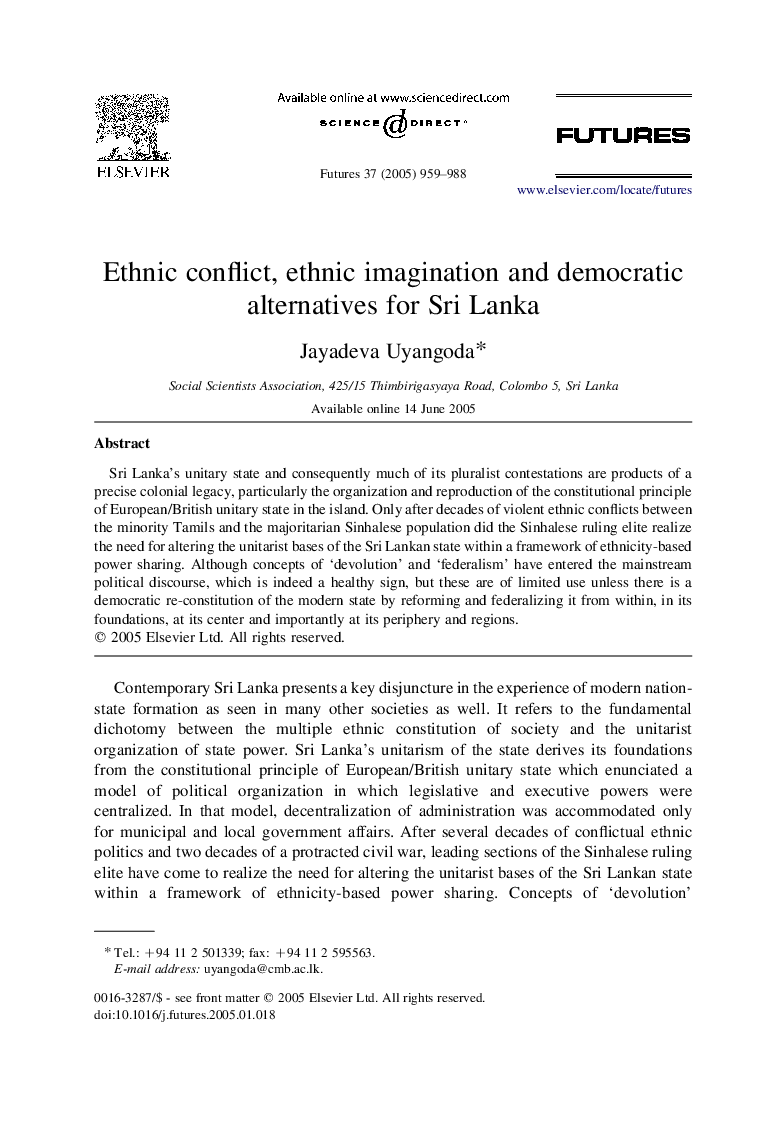| Article ID | Journal | Published Year | Pages | File Type |
|---|---|---|---|---|
| 10492106 | Futures | 2005 | 30 Pages |
Abstract
Sri Lanka's unitary state and consequently much of its pluralist contestations are products of a precise colonial legacy, particularly the organization and reproduction of the constitutional principle of European/British unitary state in the island. Only after decades of violent ethnic conflicts between the minority Tamils and the majoritarian Sinhalese population did the Sinhalese ruling elite realize the need for altering the unitarist bases of the Sri Lankan state within a framework of ethnicity-based power sharing. Although concepts of 'devolution' and 'federalism' have entered the mainstream political discourse, which is indeed a healthy sign, but these are of limited use unless there is a democratic re-constitution of the modern state by reforming and federalizing it from within, in its foundations, at its center and importantly at its periphery and regions.
Related Topics
Social Sciences and Humanities
Business, Management and Accounting
Business and International Management
Authors
Jayadeva Uyangoda,
